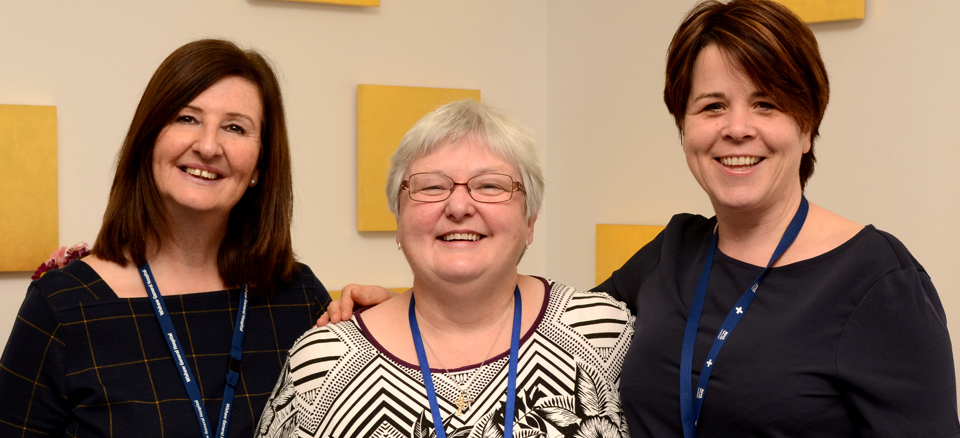The Evening Times ran an article about figures in a new report showing that women from Lanarkshire experience higher-than-average rates of stillbirth and neonatal deaths than other parts of Scotland. The region recorded the second-highest rate in Scotland with 6.42 deaths per 1,000 births. However it is worth noting that the figure of 7,096 Lanarkshire resident […]
Challenging trip for Gillian and Charline

Tricia Johnston, chaplain at University Hospital Hairmyres, along with two Macmillan Palliative Care Clinical Nurse Specialist, recently visited China.
The purpose of the visit was to provide one week’s intensive training to up-skill palliative care staff at Shengjing Hospital and the Amity Foundation.
Tricia said: “Besides being a Chaplain in Hairmyres Hospital Tricia Johnston is Advisor to the Scottish Churches’ China Group – SCCG.
“The SCCG is an ecumenical charity, founded in the mid 1980’s, that works with Chinese partners on health and education programmes. “
In 1883, Dr Dugald Christie, a Scottish Medical Missionary, established Shengjing Hospital in the city of Shenyang, in north-east China.
Tricia makes partner visits to China every year in order to see how projects and programmes are progressing. This year NHS Lanarkshire gave time to Gillian and Charline to provide this important training.
Tricia said: “Gillian and Charline are grateful to the SCCG and to NHS Lanarkshire for supporting this wonderful opportunity to share their palliative care nursing expertise with our Chinese colleagues.
“On behalf of the SCCG, I would also like to thank NHS Lanarkshire for their support and Gillian and Charline for undertaking this venture.”
Shengjing Hospital has four campuses in the city. The one Gillian and Charline were based at has 2,000 beds. The palliative care unit has 20 palliative care beds, only used for patients with a cancer diagnosis.
Gillian said: “The trip was exciting, thought provoking, challenging and intense. Family involvement in the day to day care of the patient in hospital is central. This even extends to family members being given the authority to decide what the patient is and is not told about their illness and prognosis.
“Charline added: “We learned that many patients in the palliative care ward understand they are there to recover from their illness.”


Comments are closed.